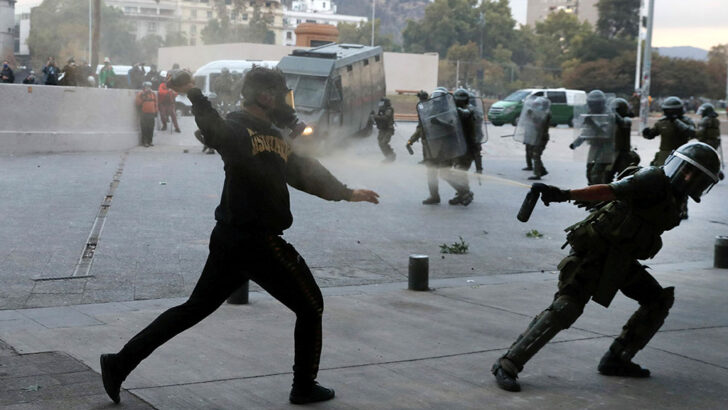In the wake of the brutal slaying of three police officers in Chile, an act that shocked the conscience of the South American nation, the country’s Catholic bishops stressed the themes of violence and public fear in an April 30 meeting with Chilean President Gabriel Boric.
Archbishop René Rebolledo of La Serena, who heads the episcopal conference, said the encounter began with a mention of the tragic attack and the general insecurity felt by many Chileans.
The murders occurred in the early hours of April 27, on a rural road, as a police car with three carabineros headed to a house to verify that a local resident had complied with precautionary measures decreed by authorities.
Their armoured car stopped at some point, and the three men exited in circumstances which are still unclear. They were shot dead and put in the back of their truck, and the criminals who shot them then set their corpses on fire.
The atrociousness of the crime shocked many in Chile, a typically peaceful country where violence has been experiencing unprecedented growth over the past few years. While Chilean violence rates are still lower than those of its neighbours, the number of crimes such as kidnappings and murders have been rapidly increasing, along with drug trafficking. The tally of homicides in Chile, for instance, rose from 845 in 2018 to 1,322 in 2022.
President Boric’s administration has been taking measures to combat violence, raising the budget for security by 5.7 percent in 2024 and passing several laws to increase the penalties for felonies connected to organised crime. Despite that, a survey recently showed that 90 percent of people believe the government’s actions haven’t stemmed the tide.
The entrance of criminal groups from other South American nations – especially from Peru, Colombia, and Venezuela – is believed to be one of the factors of change in the security scenario in Chile.
Catholic churches are targeted and set on fire because they’re seen as landmarks of colonialism. Over the years, some of those entities also began to take part in crimes like wood theft and drug trafficking, increasing the overall violence in the region.
The killing of the carabineros has been seen by analysts as a turning point in Chile’s security history, having attained an unprecedented degree of violence. Bishop Juan Ignacio González of São Bernardo, who took part in the meeting with President Boric, said that the encounter began with the subject of the three caribineros’ deaths, given the enormous commotion it caused among the Chilean people.
“We talked about the criminality that has been provoking fear in the population. Our country wasn’t used to that kind of violence,” Bishop González told Crux.


 A riot policeman uses pepper spray on a demonstrator during a protest against the Chilean
government in Santiago a number of years ago. (CNS photo/Ivan Alvarado, Reuters)
A riot policeman uses pepper spray on a demonstrator during a protest against the Chilean
government in Santiago a number of years ago. (CNS photo/Ivan Alvarado, Reuters)